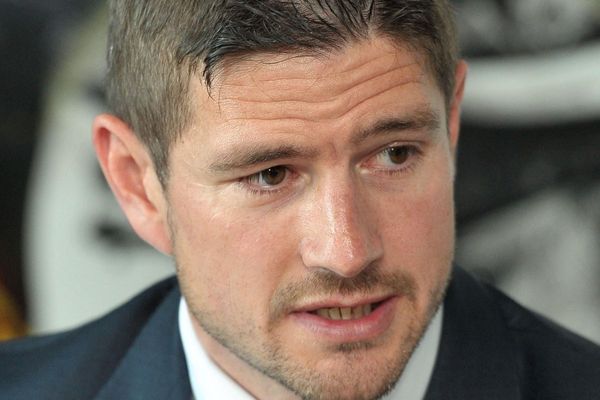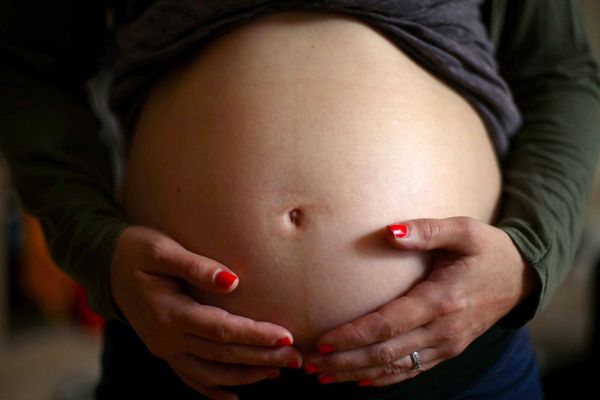
Omer Shita does not want another war, but thinks Israel may need one if his family are ever going to return to their home on the country’s northern border.
He has put his life on hold – living miles from his wife and children, working part-time from a laptop – so he can patrol the empty streets of their kibbutz, set in green hills with sweeping views of the first villages inside Lebanon.
But he is no longer sure the rest of Israel shares his commitment to bringing the evacuated community back. On a recent patrol he stopped to tease a friend weeding the front garden of his abandoned house for having too much hope.
“Safi still thinks he has a future here,” Shita said with a laugh, pointing to the man who had briefly set his gun aside to garden in the sunshine.
Hezbollah fighters are just a few kilometres away, in Lebanese hills and villages across the valley. They have been trading fire with Israeli forces since 7 October, when Hamas launched its cross-border attack out of Gaza.
Within weeks about 80,000 people had been evacuated. Border towns, villages and kibbutzim are now ghost communities, where cats roam streets thick with weeds, and the silence is broken only by the sounds of war – outgoing artillery fire, and the blasts of rockets, anti-tank missiles and drones hitting Israeli soil and homes.
Most people will not return, Shita believes, unless Hezbollah are forced back from the border – even if any prospective ceasefire in Gaza brings a deal to end the hostilities and the government declares the north safe.
The security equation changed irrevocably when about 3,000 militants from Gaza broke across the southern border, kidnapping 250 people and killing 1,200, many slaughtered in their homes or at a music festival.
“It’s like we are stuck in 6 October, but with the pictures from 7 October in our mind,” Shita said. “We were naive, or maybe it was hubris … They took everything we thought about reality and shook it.”
Their fears are heightened by the belief of many in the Israeli security establishment that Hamas copied a Hezbollah blueprint for their attack.
Snir has safe rooms to shield people from rockets, but none that lock from the inside because they never expected a mass invasion.
Community self-defence teams can hold off a few militants until the army arrives, but residents no longer trust that the military can contain Hezbollah inside Lebanon, or reach their families if the border is breached.
Hezbollah has indicated it will stop its attacks on Israel when the Gaza Strip offensive stops, unless Israel continues shelling Lebanon.
But as that campaign stretched on – it is now over five months old, and the death toll more than 31,000 – tensions in the north also escalated. Israel has struck increasingly deep inside Lebanon, and Hezbollah has intensified its cross-border fire.
In Israel 10 soldiers and seven civilians have been killed. In Lebanon attacks have killed at least 322 people, most of them Hezbollah fighters but also 56 civilians including three journalists and several children, according to an AFP tally.
This has spurred bellicose posturing from Israeli politicians. In late February, the chief of staff, Herzi Halevi, said Hezbollah “has to pay a very big price” for joining attacks on the country and hinted at a pre-emptive strike. “It is completely clear to us that we need to take the enemy first.”
In northern Israel however, many communities fear this is more a negotiating tactic than a real commitment to fight Hezbollah, which has weapons and capabilities that dwarf what Hamas could field even at its peak.
The US special envoy Amos Hochstein has been shuttling back and forth to Beirut and Tel Aviv trying to ward off a regional conflagration. “Escalation of violence is in no one’s interest, and there is no such thing as a limited war,” he warned this month, on his third visit to Lebanon.
Full-blown conflict would probably lead to guided missiles being fired at Tel Aviv, which would have a devastating economic and human impact.
“Many politicians now in Israel want to make this go away without a war, without a price,” said Ori Ben Hertzl, a reservist and neighbour of Shita at kibbutz Snir. “The government decision-makers are preparing the day we can normalise this reality and tell people ‘it’s safe’.”
They have formed a group, Lobby 1701, to put their voices into an Israeli political conversation dominated by the war in Gaza, and campaigns for hostages.
The group is named for a UN resolution that aimed to end the 2006 Lebanon war. It requires Hezbollah to retreat north of the Litani River, which runs roughly parallel to the border, but they never complied.
That precedent makes Lobby 1701 members wary that any future deal would be toothless. “I’m very much concerned there will be a ceasefire in Gaza, a ceasefire here, and the government will tell us to return,” Ben Hertzl said.
If Hezbollah fighters stay in place at the border when the guns fall quiet, areas inside Israel will be turned into a buffer zone where only the old, the eccentric and the very poor are willing to live in the shadow of an attack, they say.
“We can’t let them be on the corner opposite our home,” said Raz Malka, 26, who knows war intimately. In 2006 a rocket hit his home in the border town of Kiryat Shmona, when the family was inside. This year another two smashed into his childhood kindergarten a few metres away.
“I can’t drink my morning coffee and see the yellow flag of Hezbollah flying in a village across the border,” he said on a brief visit back to the empty neighbourhood. “I know October 7th can happen again if I can see that flag.”
Already, only 60% of the people who were evacuated or chose to leave their homes along the 75-mile (120km) border are sure they will return when the war is over, a recent poll cited by Haaretz newspaper found.
Allowing the north to empty of life would not only be a personal catastrophe but also a strategic mistake, Ben Hertzl said. “We [the state of Israel] never left a region, but now this region is deserted.”
Shita said a recent visit to Tel Aviv, which he thought would be a chance to recharge, instead made him furious. “I went for a run by the sea, and I thought how can life be so normal here.”
Many of those evacuated had done this before during the war in 2006 and thought they would be away a few days – at most a few weeks.
“We had savings for this, to last a month,” said Lea Raivitz, who spent half her childhood and all her adult life in kibbutz Baram, a socialist community where properties and cars are still communally owned.
Five months later they are still living in hotels or rental apartments, watching their once close-knit communities fracture under the strain.
Their evacuation has been now extended until July, edging towards a year, and some northerners wonder if they should have left at all. “People think if we didn’t evacuate we would push the army to take the war to Lebanon,” said Ben Hertzl.
It is easier for a state to abandon empty towns than let citizens be killed in their homes, he added, and people from this beautiful but remote and sparsely populated part of the country have limited political or financial clout.
Not everyone wants war. Raivitz believes good safe rooms – 200, so every house in the kibbutz has one that can be locked from the inside – and a political agreement to contain Hezbollah, with time, may allow the community rebuild.
“I worry about all the things we have to achieve before we go back to normal, and maybe it will never be normal,” she said. “You have to rebuild trust. You can’t buy it with money, build it with concrete.”
Still, she is determined to go back, because she considers living in the kibbutz is a mission. “We say if we are here, it shows the whole country that Israel is still here.”







